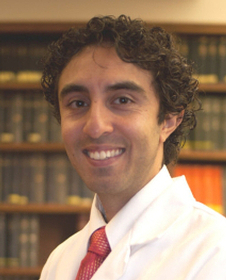This post is written by glaucoma specialist, Arsham Sheybani MD, who highlights various factors that should be considered by candidates pursuing a career in glaucoma.
1. How competitive is glaucoma fellowship?
Typically the few "elite" programs will always be competitive; however, now more than ever, applicants are choosing the field over other traditionally ultra-popular subspecialties. This may either be market driven (currently jobs in glaucoma are abundant) or because the field is set for a Renaissance Period. Regardless, it means that fellowships have become more competitive than in years past. However this doesn't mean that obtaining a fellowship is considered difficult. SF match data shows an increase in interest however it is not thought that the number of applicants has exceeded the number of fellowship positions (SF match registered and non-registered North American programs).
2. What should I look at when evaluating a fellowship?
A. Number of faculty - This is important however the devil is in the details. There are some extremely strong and popular fellowships with essentially 1 or 2 faculty yet there are other programs with a surplus of faculty but lack good mentorship and teaching. Prior fellows including the outgoing fellow(s) are the best resource. Do your homework ahead of time to ensure that you know what you are getting before you start.
B. Prestige of faculty - Prestige is great but it depends on what your goals are. If you want to move to a specific location and open up or join a practice, it would be best to go somewhere that will provide you with great training regardless of how famous the faculty may be. Consider picking a fellowship based on geography that might have better connections in the area you might want to go. Don't feel afraid of starting the job search BEFORE you start fellowship and sometimes your future employer or practice may steer you to one fellowship over another. If you want to go academic, then well-known faculty is a plus. But be careful - there is a big difference between famous people and good mentors. Not to say that they are mutually exclusive but they are not always synonymous. You would hate to be somewhere that just has you watch the "master" work. Again, prior fellows are your best resource and honestly, residents of that program see things from a unique and accurate perspective.
C. Industry connections of faculty - Again, depends on your career goals. You can establish these connections at any time. Some people can get you connected earlier. A healthy balance in a fellowship is key. It would be ignorant to go to a place that has a blanket policy on denying industry. Knowing how industry thinks and what drives it only makes you a more critical doctor - whether you end up in a private practice or university setting the goal after fellowship is to understands as many aspects of the profession as possible.
D. Research vs. no research - Research isn't just for resume building or even to start careers in academia. It's a way to stay cutting edge, learn, and explore more about the field. Places without any research interest should fall lower to your list - you will likely not be as up-to-date on current practices.
E. Independent vs. mentor based learning - Great programs hold your hand when you need it and let you go when you're ready. It is ideal if as part of your fellowship you have your own independent clinics and OR time. The best places let you staff residents, have your own clinics and own patients. They also allow you to work alongside your attendings to learn from them BUT NOT TO MOVE THEIR VOLUME. They should be able to work independent of you as well - otherwise be ready to be available for anything and everything. Being a pure “work horse” limits your learning opportunities in clinic.
F. Surgery numbers- Variety, variety, variety! And for glaucoma: cataracts, cataracts, cataracts! Phaco is a glaucoma procedure. Be aware of fellowships where only glaucoma surgery is performed / taught. Some attendings will not let you do cataracts. That can be troubling for you upon completion of fellowship and starting your job. An exposure to minimally invasive glaucoma surgeries (MIGS) is also a must - this is potentially where things will be headed. And if they don’t expose you to these surgeries, you want to be a part of a fellowship that keeps you comfortable with new procedures and challenging cases - this is ideal. It will help you be adaptable as the field changes in the future. That said, the other extreme is not ideal either. Operating 4 days weekly with minimal post-op care (yes there are rare programs that have this model) is dangerous for obvious reasons.
Average procedure numbers among AUPO certified glaucoma fellowships can be found here.
3. What questions should I ask on my interview?
What are ideal qualities you look for in a fellow?
What do you hope fellows that graduate from your program accomplish in their careers?
Determine if you have the exposure to the people you want to work with.
Get a sense of how much resident and medical exposure you have.
Ask about how well you are supported by technicians and staff - or are you in charge of booking, calling patients for surgery?
Ask about orientation - are you just thrown in there or is there a system to efficiently get you up to speed.
Are you allowed time to search for a job?
Are you allowed time and support for meetings - not just for research but to network?
Are you allowed time to study for boards?
Want to get more from OphthoQuestions?










Please login to comment.